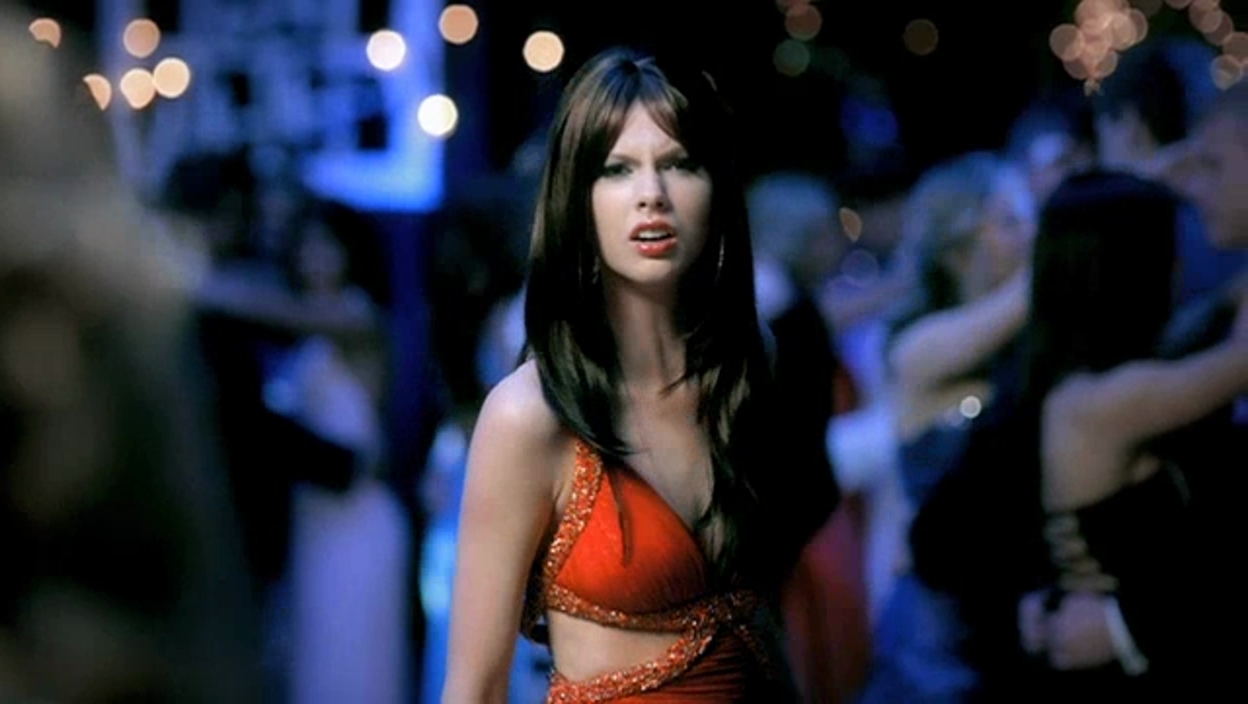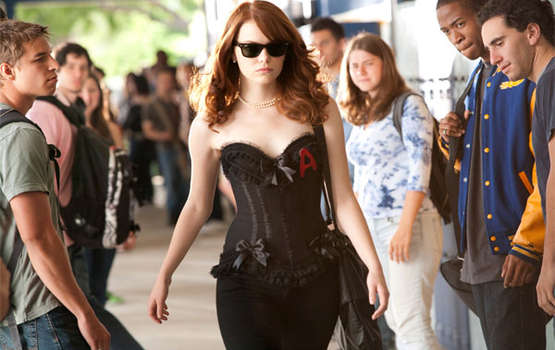The virgin-whore dichotomy has ancient roots, but it did not start to gain its current prevalence until the rise of Christianity (Tumanov 511). The general distrust of female sexuality has been around through most of recorded history, but it was Christianity that cemented the distinction between the “whore” Eve with the virgin Mary as the lens through which we view women. In Christian mythology, Mary is the eternal virgin, devoted mother, and obedient wife. Women are meant to aspire to be her, and men are supposed to want her. In contrast, we have Eve the one to disobey the commands of her (male) deity and commit the original sin, and the first woman to have a sexuality (Tumanov 513). According to Christian tradition, Eve’s disobedience has damaged the purity all of humankind, and we are still bearing the weight of her sin. And yet even within Christian discourse, there is a disconnect in how Eve is talked about. For while she is the catalyst for the original sin, she was also created from one of Adam’s ribs to be a perfect partner for him, and their relationship before the fall of man is seen as ideal. As a result, Eve is as desired as she is reviled. Take this forward to the present day, and one of the problems of the virgin-whore dichotomy becomes immediately apparent. The only reason the “whore” is able to become so tarnished and undesirable is precisely because she is universally desired. While female sexuality seems to have become more acceptable over time, a closer look at “acceptable” versus “unacceptable” sexual activity reveals that activity widely seen as acceptable still falls exclusively under male control (McCormick).
A very clear example of what the virgin-whore dichotomy looks like in media can be found in “You Belong With Me” by Taylor Swift and the accompanying music video. The song is performed from the perspective of an innocent, desexualized girl who is in love with a boy who is dating a girl whose flaws are explained as being sexual and not being submissive in the relationship:
“You’re on the phone with your girlfriend-she’s upset,
She’s going off about something that you said
[...]
She wears high heels
I wear sneakers
She’s cheer captain
And I’m on the bleachers” (Swift).
The flaws of the boy’s girlfriend are pinned more distinctly on her sexuality in the music video. Here we can clearly see the contrast between the virginal blonde in loose-fitting, somewhat childish clothing wearing unsexy nerd glasses and the slutty brunette in form-fitting, clearly sexual clothing.
When we first meet her Whore immediately starts making out with her boyfriend. When we next see her, she is cheering on her boyfriend’s football team and then celebrates their win by making out with a boy who is clearly not her boyfriend. Boyfriend sees this and is clearly, and understandably, upset. Meanwhile, Virgin is spending her days watching boyfriend through his bedroom window, exchanging messages by holding up adorable signs, and playing in the school band at the football game. Some days after the game prom happens. Virgin plans to study instead of going to prom, but after Boyfriend holds up a “Wish you were [going to prom]” sign, she removes her glasses and dons a modest, pure white ballgown she either already had or acquired in the hour or so before the dance.
Upon seeing her, Boyfriend is stunned at her beauty and realizes that Virgin is the girl he has really wanted the whole time, and they hold up matching “I love you” signs while Whore storms off furious that her attempt to win back boyfriend with more makeouts has failed.
Not all media involving female sexuality is as clear cut as “You Belong With Me.” In the film Easy A, the main and most sympathetic character Olive Penderghast is the “whore” in our virgin-whore dichotomy.
After lying to her friend about losing her virginity one weekend, the rumor circulates around the student body of her high school, and immediately everyone, especially the school’s Christian group, starts treating her differently because of her supposed loss of purity. Later when she pretends to have sex with her friend Brandon at a party to help keep him from being bullied for being gay and then accepts a gift card from a boy in exchange for letting him tell everyone that they went to second base, she is branded a “dirty skank” by even her best friend Rhiannon. To fight the dramatically over-the-top harassment, Olive embraces her whore image by dressing like a “high-end stripper for governors or athletes,” sewing a red “A” on her clothes (inspired by The Scarlet Letter being assigned in her English class), and allowing more male students to trade money for permission to say that they slept with her.
The harassment gets more and more out of control until Olive is forced to confess via webcast that all the rumors were false and reveal that she had been unfairly persecuted. The webcast and film end with this declaration by Olive about her new boyfriend Todd: “I might even lose my virginity to him. I don't know when will it happen. You know, maybe in five minutes, or tonight, or sixth months from now, or maybe on the night of our wedding. But the really amazing this is, it is nobody's goddamn business.”
Unfortunately, a deeper look reveals that Easy A’s take on the virgin-whore dichotomy is not all that revolutionary. While the film clearly positions the harassment Olive receives as completely unfair, it does not claim that it is the students’ actions that are unfair. Rather, the film reminds us time and time again that Olive should not be getting this treatment because she is “not that kind of girl” and still a virgin. The text in no way indicates that the persecution would still be unfair had the rumors been true. What actually happens is the film goes out of its way to punish the few actually sexual characters. In one of the film’s subplots, the school counsellor has an affair with a 21-year-old student. As a result of a woman exercising her sexuality outside of her, apparently already failing, marriage, the student catches chlamydia from her and is sent to live with ultraconservative Southern relatives, her husband separates from her, and Olive is blamed resulting in the bullying to increase dramatically. In addition, in the world of Easy A, sex is something so exceptional and taboo that a rumor about a relatively anonymous student losing her virginity literally travels to the entire student body and most of the faculty in seconds. And while Olive becomes more of an outcast with each passing deal, the men she “sleeps” with are treated almost like heroes and become more popular for having sex. It is only female sexuality that is truly punished by the film.
One does not have to look hard to see how the virgin-whore dichotomy in songs like “You Belong With Me” and films like Easy A affects men and women today. Abstinence-only sex education programs teach women that if they have sex they are dirty and worthless leading to tragic cases where victims of human trafficking do not run or call for help because they feel unworthy of rescue (Domingues). Purity is an impossible standard made to create a system where men have complete control over women’s sexualization (West). Even efforts by women to create spaces to reclaim their sexuality are “constantly invaded by men determined to insert their big, throbbing, veiny opinions into women's personal spaces. Queer women, fat women, women in pain, women trying to practice very basic self-care and sexual reclamation—they're all subject to unsolicited male assessment and exploited for male arousal. Women can't even escape sexualization in the context of attempting to make a statement about their own sexualization. It's relentless” (West). The reliance on the virgin-whore dichotomy in the media serves to reinforce this mindset and provide approval for this behavior.
Unfortunately, a deeper look reveals that Easy A’s take on the virgin-whore dichotomy is not all that revolutionary. While the film clearly positions the harassment Olive receives as completely unfair, it does not claim that it is the students’ actions that are unfair. Rather, the film reminds us time and time again that Olive should not be getting this treatment because she is “not that kind of girl” and still a virgin. The text in no way indicates that the persecution would still be unfair had the rumors been true. What actually happens is the film goes out of its way to punish the few actually sexual characters. In one of the film’s subplots, the school counsellor has an affair with a 21-year-old student. As a result of a woman exercising her sexuality outside of her, apparently already failing, marriage, the student catches chlamydia from her and is sent to live with ultraconservative Southern relatives, her husband separates from her, and Olive is blamed resulting in the bullying to increase dramatically. In addition, in the world of Easy A, sex is something so exceptional and taboo that a rumor about a relatively anonymous student losing her virginity literally travels to the entire student body and most of the faculty in seconds. And while Olive becomes more of an outcast with each passing deal, the men she “sleeps” with are treated almost like heroes and become more popular for having sex. It is only female sexuality that is truly punished by the film.
One does not have to look hard to see how the virgin-whore dichotomy in songs like “You Belong With Me” and films like Easy A affects men and women today. Abstinence-only sex education programs teach women that if they have sex they are dirty and worthless leading to tragic cases where victims of human trafficking do not run or call for help because they feel unworthy of rescue (Domingues). Purity is an impossible standard made to create a system where men have complete control over women’s sexualization (West). Even efforts by women to create spaces to reclaim their sexuality are “constantly invaded by men determined to insert their big, throbbing, veiny opinions into women's personal spaces. Queer women, fat women, women in pain, women trying to practice very basic self-care and sexual reclamation—they're all subject to unsolicited male assessment and exploited for male arousal. Women can't even escape sexualization in the context of attempting to make a statement about their own sexualization. It's relentless” (West). The reliance on the virgin-whore dichotomy in the media serves to reinforce this mindset and provide approval for this behavior.
Works Cited
Dominguez, Alex. "Elizabeth Smart Speaks on Human Trafficking." The Christian Science Monitor. The Christian Science Monitor, 04 May 2013. Web. 20 May 2013.
McCormick, Naomi B. "Preface To Sexual Scripts: Social And Therapeutic Implications." Sexual & Relationship Therapy 25.1 (2010): 91-95. Academic Search Complete. Web. 20 May 2013.
Tumanov, Vladimir. "Mary Versus Eve: Paternal Uncertainty And The Christian View Of Women." Neophilologus 95.4 (2011): 507-521. Women's Studies International. Web. 20 May 2013.
West, Lindy. "Female 'Purity' Is Bullshit." Jezebel. Gawker Media, 7 May 2013. Web. 20 May 2013.




